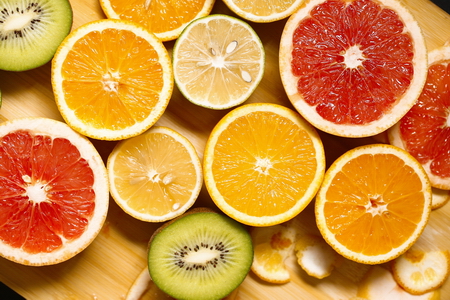Group diet
What should women pay attention to when eating fruit
There are many kinds of fruits on the market, such as bananas, apples, pears, watermelons and so on. What should women pay attention to when eating fruit?
All kinds of fresh fruits contain a variety of nutrients, especially vitamins and minerals, which are not only helpful for health care, but also for the treatment of diseases. Fruit contains not only cellulose, but also fruit acid, which can promote intestinal peristalsis, help digestion and facilitate defecation. Pears, apricots, peaches and honeydew melons contain more vitamin A, which can reduce wrinkles, moisturize skin, nourish hair, protect eyes and reduce aging symptoms. Papaya, pomegranate, hawthorn, lemon and jujube not only contain rich vitamin C, but also a small amount of carotene and a certain amount of vitamin P.
The so-called dry fruit refers to the hard fruit with a hard shell. Dried fruits have their own special flavor, but also have different nutritional components due to different varieties. The nutritional components are as follows: protein 10% – 20%, up to 35% (such as South melon seed); fat 20% – 30%, up to 63% (such as walnut); carbohydrate 10% – 20%. However, chestnuts, hazelnuts, lotus seeds and white fruits contain 40% – 70% carbohydrate, while the fat content is only 2% – 3%. The thermal energy content is 200-400 calories per gram of chestnuts, hazelnuts, lotus seeds and white fruits, while that of peanuts, walnuts, pine nuts, melons and seeds can reach 500-700 calories; the iron content is 2% – 8%, and other minerals such as phosphorus, zinc, magnesium are also rich. Carotene is 0.1-0.5 mg / 100g, vitamin B1 is 0.2-0.4 mg / 100g, vitamins are 0.1-0.15 mg / 100g, niacin is 1-13 mg / 100g, generally without vitamin C.
It can be seen from the above that dried fruit food has high thermal energy content, rich protein, fat and iron content, which can be used as a good source of nutrients in the diet. For children, especially malnourished and anaemic children, as well as the sick and tired elderly, it can improve their nutritional status and strengthen their bodies.

Although fruit is rich in nutrition, we must know how to eat fruit.
To understand the “best edible period” of fruits: This is because different varieties of fruits have different growth time, season length and maturity time, so they have their own “best edible period”. For example, cherry, apricot, peach, strawberry and other fruits will be fresher as they are picked; pear has a “post mature stage” from growth maturity to edible maturity Dquo;, it’s the best when it’s fully mature.
When eating fruit, there should be a small number of varieties: because the varieties of fruit are different, their nutritional components are different. For example, the content of vitamin C and P in jujube is the highest in fruit, while the apple is rich in potassium. In order to maintain the nutritional balance, the general healthy people should eat fruit with a small number of varieties.
Should know what fruit treats what disease: This is because different kinds of fruits have different therapeutic effects on different diseases. If you need to stop coughing and dissipate phlegm, you should eat pears, red dates for those who need tonics, litchi and grapes for those who have neurasthenia, and hawthorn and apple for those who have high blood pressure and coronary heart disease.
Do not eat too much fruit: eat fruit must be enough, not eat too much at a time, not to replace food. If you overeat persimmon, you will suffer from & ldquo; stomach stones & rdquo; if you overeat dates, you will suffer from indigestion; if you overeat uncooked oranges, oranges, and apples, you will weaken your spleen and stomach; if you overeat pineapple, you will suffer from & ldquo; pineapple allergy & rdquo;. If you overeat lychee, you will get & ldquo; fire & rdquo;. If you overeat banana and apple, you will get a lot of potassium, which will damage your kidney; if you overeat lemon, you will lose your stomach, etc. For some patients, but also because of greedy fruit and aggravate the disease, such as diabetes patients do not eat high sugar fruit.
Before eating fruit, it must be carefully cleaned and disinfected: This is because fruits are often contaminated with many pathogenic microorganisms in various links of growth and sales. If not cleaned, it will damage the spleen and stomach, leading to enteritis, dysentery and other diseases. Before eating, it can be disinfected by soaking in 1:5000 potassium permanganate solution for 15 minutes, and then peeled for consumption.

